Back in December 2020 we documented the appearance of a report by the BBC’s Quentin Sommerville about the seizure by Italian authorities of a shipment of the drug Captagon that originated in Syria.
SUPERFICIAL BBC REPORT ON HIZBALLAH DRUG TRAFFICKING
In his report Sommerville correctly informed BBC audiences that:
“The drugs came from the Syrian port of Latakia, the second haul the Italians have seized this summer. The Syrian regime and its ally, Lebanese militia Hezbollah, are deep in the drugs trade. It’s a major source of funding.”
Hizballah’s involvement in the amphetamines trade (in addition to other types of drug related activities) goes back a decade and a half and has been the topic of numerous studies, articles and UN reports over the years.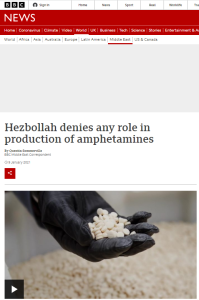
Nevertheless, less than three weeks after the appearance of that filmed report from Sommerville, he wrote another one titled “Hezbollah denies any role in production of amphetamines” which was published on the BBC News website on January 9th 2021.
“The leader of Lebanon’s militant group Hezbollah has denied accusations it is involved in amphetamine production.
Sheikh Sayyid Hassan Nasrallah, a staunch ally of the Syrian regime, said there was “no credibility” to the allegations. […]
He said Hezbollah was being targeted by “fake news” and indicated western “propaganda” was behind the claims.”
Both those reports by Sommerville were promoted to readers of what is to date the sole BBC News website report concerning Jordan to have appeared this year.
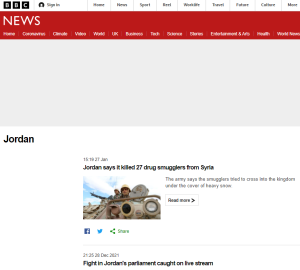
In that January 27th report – “Jordanian army says it killed 27 drug smugglers from Syria” – readers find a reference to a previous drug smuggling related incident several days earlier which had not been reported by the BBC News website.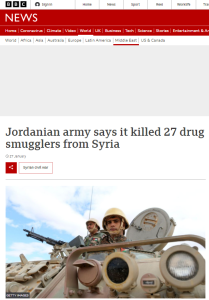
Readers are also told that:
“Jordanian officials have blamed Lebanon’s militant Hezbollah movement and other Iran-backed militias operating in government-controlled parts of southern Syria for the surge in smuggling into the kingdom.
The Syrian Observatory for Human Rights also said that Suweida had become a “major hotbed” for the smuggling of drugs by Hezbollah, and that it was being aided by Syrian military personnel.
Hezbollah has denied such accusations, calling them fabricated.
The Syrian government has said it is doing its utmost to crack down on Captagon production.”
The BBC’s reporting on the story ends with that unhelpful ‘he said-she said’ account which clearly leaves readers none the wiser as to the extent of the involvement of the Syrian regime and the Hizballah terrorist organisation in the drug production and smuggling which is affecting the entire region.
Clearly the BBC could do a much better job – if it so wished – of informing its worldwide audiences on this topic.

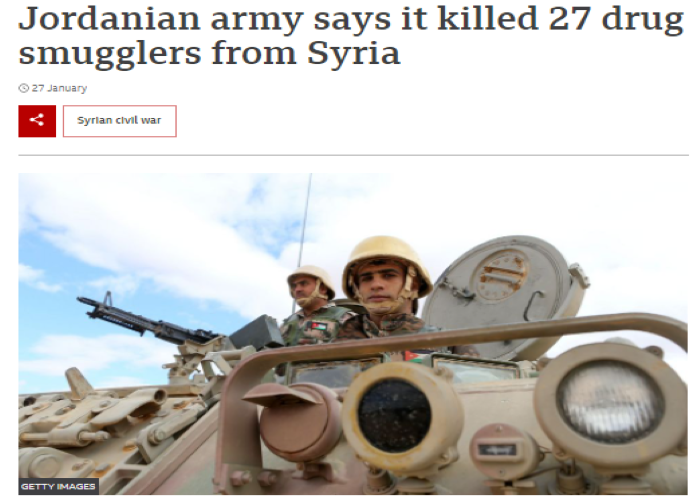
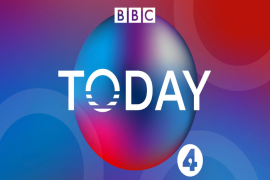
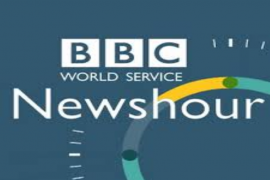

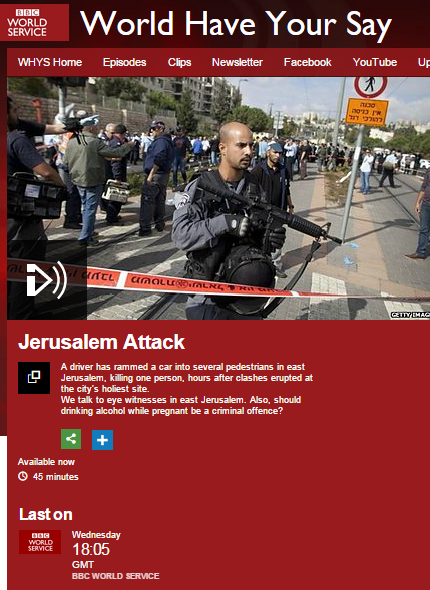
Clearly, the BBC prefer to downplay anything that makes a Muslim majority country sound or look bad. #defundthebbc